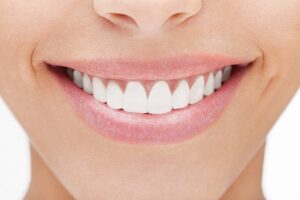If your tooth has cracked or is broken, seeing a dentist as soon as possible is essential. This minimises the damage and increases the chance of saving the tooth.
This study aims to measure the effectiveness of a short workshop educational intervention in managing dental emergencies by analysing utilisation and perceived usefulness at six months. The workshop was delivered across Australia for regional and rural hospital emergency department (ED) doctors. For a leading emergency dentist Adelaide, check this out.
Impacted or partially erupted wisdom teeth
 Wisdom teeth, or third molars, usually come through between the ages of 17 and 25, but they often become impacted because there is insufficient space in the jaw to allow them to emerge. This causes pain and swelling in the gums or jaw bones and may damage neighbouring teeth.
Wisdom teeth, or third molars, usually come through between the ages of 17 and 25, but they often become impacted because there is insufficient space in the jaw to allow them to emerge. This causes pain and swelling in the gums or jaw bones and may damage neighbouring teeth.
Impacted wisdom teeth are more likely to cause tooth decay because they are difficult to clean. They can also trap food and bacteria, leading to a painful gum infection called pericoronitis.
When a wisdom tooth becomes impacted, the dentist may recommend removing it to prevent serious problems. They can pull a partially erupted wisdom tooth by lifting the gum flap to expose it or surgically cut off a fully impacted wisdom tooth. The surgery is usually performed under local anaesthetic. Regular six-month dental appointments allow your dentist to monitor the growth and development of your wisdom teeth and detect a problem before it develops.
Gum disease
Gum disease, called periodontitis, is a bacterial infection that attacks the soft tissue and bone-supporting teeth. It is the leading cause of tooth loss in adults. It is possible to reverse the damage done by gum disease if it is treated early enough. For a leading emergency dentist Adelaide, check this out.
Everyone has a variety of bacteria living in their mouths, which create plaque that builds up on and around the teeth. The bacteria irritate the gums if this isn’t removed with regular brushing and flossing. This leads to red, swollen, and bleeding gums, which is the first sign of gum disease, gingivitis.
Gingivitis can be cured with professional cleaning and daily brushing, flossing, and using a rinse that kills bacteria. See a dentist for professional cleanings every 6 to 12 months and to get annual dental X-rays. Some medical conditions that decrease the flow of saliva, including diabetes and certain illnesses such as cancer and HIV, may increase the risk of gum disease.
Dental Implants
Dental implants are a highly durable, long-lasting solution for replacing missing teeth. They are made from titanium and resemble a natural tooth in both look and feel. They can replace a single tooth or support a bridge or denture. They also prevent bone loss, improve chewing and speech, and help patients avoid the “sunken-in” appearance caused by missing teeth.
Before a dentist performs an implant, they will perform several special tests to determine how much healthy bone is left in the jaw. They may recommend a bone graft procedure to encourage healthy growth if insufficient.
After the procedure, it takes six months for the implant to fuse with the jawbone. Eating soft foods and keeping the area clean is essential during this time. Failure to do so can result in the implant failing, damaging other teeth or even the jawbone. The patient should always contact their emergency dentist if they experience pain or something that seems wrong. For a leading emergency dentist Adelaide, check this out.
Broken teeth
Teeth are the most robust and most complex tissue in the body, but even they have their limits. Falls blows to the face, or biting down on hard foods can chip or break teeth. These cracks are painful and can expose your nerve to infection. It is essential to seek treatment immediately.
Your dentist can treat many types of broken teeth. Depending on the severity of the break, they may repair it with a filling, onlay or crown. Exceptionally severe breaks may require a root canal and a crown or need to be removed.
You can reduce your risk of a severe break by wearing a mouthguard when playing sports and chewing soft foods. You should also take acetaminophen or another over-the-counter painkiller if the tooth hurts and rinse your mouth frequently with salt water.